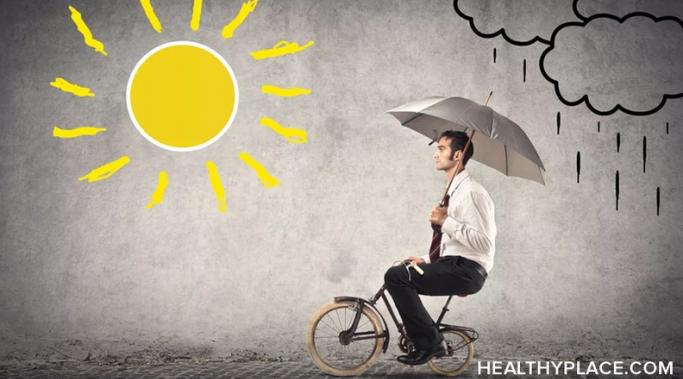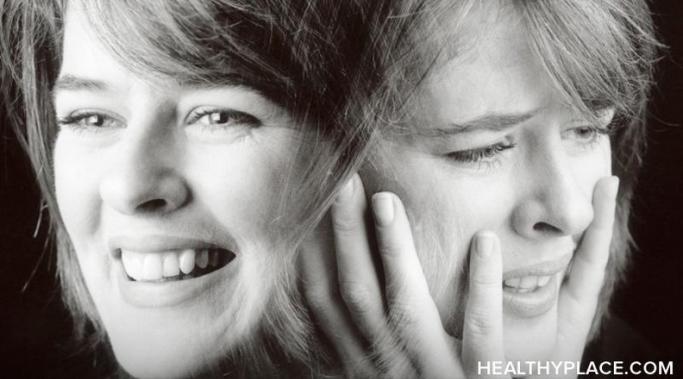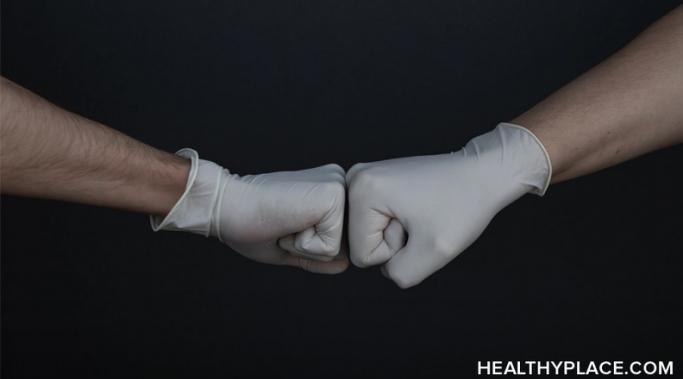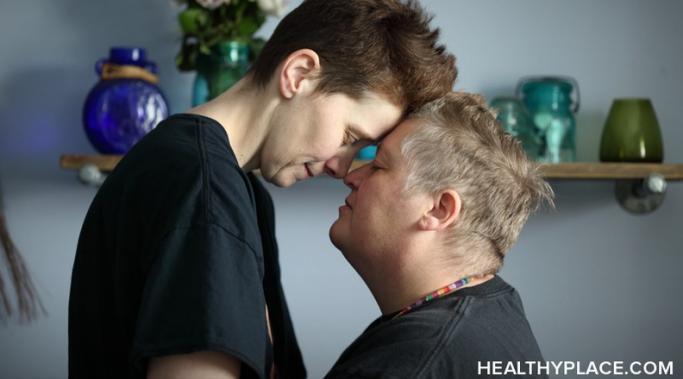I've spent some time this week, reflecting on various lessons I've learned from my brother since he became mentally unwell with anxiety and depression. So often in our relationship, I've taken on the role of "teacher" -- as is natural for a bossy older sibling. However, over the last seven years, I have gained a lot from observing how my brother lives with mental illness. I'd like to unpack that a little bit today.
Peer-to-Peer
Caregiver burnout is a very real phenomenon when supporting someone with mental illness. In my experience, caregiver stress and compassion fatigue arise as a result of putting your own needs to the bottom of your list on a consistent basis. I've experienced caregiver burnout on many occasions when supporting my brother with his mental illness -- and if I'm very honest, I'm experiencing it again right now.
Many people aren’t sure whether or not to talk to kids about mental illness. When I was younger my aunt had frequent hospitalizations due to mental health issues, but I was told she had a sore back. I guess my family thought this was an inappropriate topic to talk to a child about. In hindsight, I think it could have been a positive conversation if I had been told about my aunt’s mental illness – here’s why.
Feeling overwhelmed by supporting someone with mental illness is nothing to be ashamed of, but sometimes we can struggle to admit our true feelings. Here's a little bit about how I felt when my brother was diagnosed with chronic anxiety and depression.
Mental illness in the media can cause widespread public discussion. If you have real-life experience of mental illness, others may try to engage you in a conversation about media coverage, not realizing your story. I often find myself becoming upset by comments made by others on mental illness in the media because of my brother's chronic anxiety and depression.
When we were little, I spoke on behalf of my brother a lot because he had a speech delay. He would regularly mix up or mispronounce his words, and I would find myself acting as some sort of amateur translator when he spoke to anyone outside our immediate family. My most commonly used phrase was, "What he's trying to say is . . ."
My family members each have a different supportive style when it comes to my brother's mental illness. In the early days of his depression and anxiety diagnosis, we used to judge each other for these differences -- each of us believed that our approach was the best one. I am looking at supportive styles differently, now.
Learning to recognize caregiver stress at its early stages is important. Supporting my brother through his anxiety and depression has made me keenly aware of the importance of managing my own stress. For me, the first step of this process was learning to recognize the early signs of caregiver stress in my body.
My son Ben, diagnosed with paranoid schizophrenia at age 20 after five years of confusing onset symptoms, has often seemed "frozen in time" in this phase of recovery; emotionally and cognitively stuck at the age he had been when the symptoms began during high school.
Despite three relapses during this near decade of stabilization (all due to instances of refusing meds), Ben has been in recovery most of those years and has progressed in many ways, as I wrote in an earlier post, Mental Illness Frozen in Time Can Thaw.
But, until recently, Ben had few friends and I wondered if he would ever get that particular joy back in his life, or when he might reach the stage of self-acceptance that is crucial to healthy friendships.
Would he ever again regain what he had before schizophrenia set in; the simple joy of having people with whom he could share a meal, see a movie, laugh and talk, or just hang out?
I've had the privilege of meeting many wonderful people who happen to be diagnosed with mental illness and look forward to many more.
There are many stages we go through with any life change, and mental illness is no exception. Families have stages of acceptance, certainly the Person Affected by Mental Illness (PAMI) does too. *
When I talk with a PAMI who is at a stage of acceptance of his mental illness diagnosis, takes her own meds without supervision and is living a functional, productive life, I often ask if there were any particular turning points in their recovery process. In particular, I want to know: Was there a moment when it clicked? When you accepted your diagnosis as true?
Not once - not once! - has anyone said, "My mother finally convinced me I have schizophrenia."









